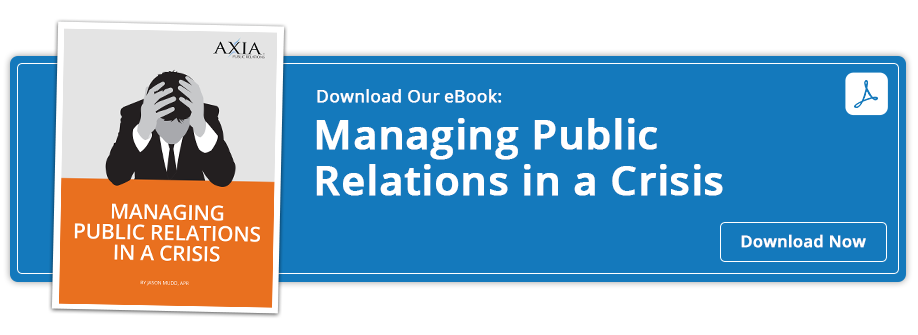
- Delta and United Airlines Facing Different PR Hurdles
- Responding to Crises: Lessons Learned from Harvard and PRSA
- 60-Second Close: Response is Everything
Audio: Listen to this article.
1. Delta and United Airlines Facing Different PR Hurdles
- Delta Airlines received a lackluster response to the change to the Delta Skymiles benefits program. Despite walking back some of the changes and the CEO issuing a public apology, Delta passengers were less than thrilled with the airline’s response to their frustrations.
- United Airlines, one of Delta's main competitors, is also facing a potential PR fiasco with implementing its new boarding policy. United’s boarding process, which boards passengers according to seat position, has passengers concerned about cargo space for their carry-ons.
- While both airlines made the changes to help passenger’s experiences, they drew heated responses. The key takeaway is change can be tough, but manageable, when well articulated in advance to minimize discord.
2. Responding to Crises: Lessons Learned from Harvard and PRSA
- Harvard University faces scrutiny after a negative response to their statement on the Israeli-Palestinian conflict. Harvard was criticized for the delay in response to the controversial attack on Israel and in responding to a controversial letter blaming Israel for the attack.
- Public Relations Society of America’s New York chapter recently apologized for an earlier response from its president Carmella Glover to the surprise attack on Israel. Although the original email intended to demonstrate solidarity with Israel, the effect was criticized substantially.
- Harvard and Glover are not alone in the struggle to articulate an appropriate response to the conflict in Israel and Gaza. The violence and conflict highlight the need for effective and thoughtful crisis communication.
3. 60-Second Close: Response is Everything
- Whether in response to public disapproval like Delta Airlines’ SkyMiles debacle, or a policy change like United's new boarding policy, hearing your audience is always critical.
- In crisis communication, responding quickly and thoughtfully can help negate potential friction. For the Israeli-Hamas conflict, companies must avoid language associated with Antisemitism or Islamophobia; threading the needle of supportive and non-condemning can be challenging. That’s why having a diverse team is essential to understanding an audience's perspective and responding to their needs.
- Axia focuses on understanding your audience while consulting with a diverse group to help create a compassionate and empathetic response to your audience’s needs. Our team adapts to reach your audience more effectively. Get in touch about how we can help your organization navigate communication in challenging times.
Photo by Maria Tyutina
Topics: crisis communications, 60-Second Impact



Comment on This Article